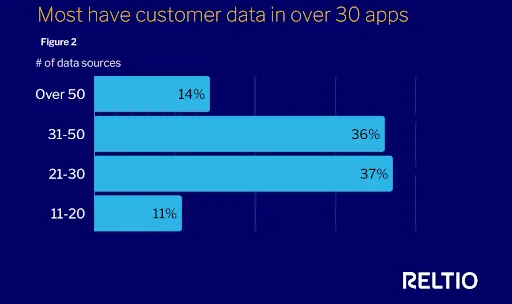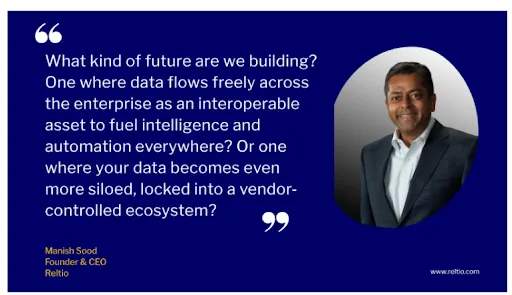Enterprise data is becoming the new battleground for AI dominance, and the walls are going up fast. Salesforce recently announced its decision to acquire data management platform Informatica for $8 billion. Just months earlier, Salesforce updated Slack’s terms of service to prevent organizations from using their data to train AI models.
Institutional knowledge, captured in years of team conversations, became inaccessible to AI systems that could identify patterns, surface insights, and automate workflows. The data exists, but it’s effectively quarantined within Salesforce’s controlled environment.
The pattern is clear: some major vendors are systematically locking down what should be open enterprise assets, forcing organizations into controlled silos.
In an era where AI agents need real-time, seamless access to unified, cross-system data, this shift poses fundamental risks to business agility and innovation.
The real reason behind the Salesforce-Informatica acquisition
By acquiring Informatica, Salesforce is making a play to own the data foundation that powers AI workflows. It’s a defensive move as much as an offensive one: control the data layer, and you control which AI agents access and use enterprise information.
Conversational AI agents and autonomous workflows are increasingly replacing traditional point-and-click applications. In this new paradigm, the application layer becomes less relevant while the data layer becomes everything. Forget flashy interfaces—AI agents thrive on complete, real-time enterprise data.
Salesforce understands this shift better than most. Their traditional CRM dominance means little if customers can bypass Salesforce entirely by asking an AI agent to “find all prospects in New York who haven’t been contacted in 30 days and draft personalized outreach emails.” That agent needs data from CRM, marketing automation, support tickets, financial systems, and more—unified and accessible in real time.
Salesforce’s acquisition strategy makes sense from a business standpoint, but it raises important questions about what happens when enterprises lose data neutrality.
Why AI transformation demands data independence
Data availability and integration are two of the largest barriers to AI success, according to a recent Reltio study, and it’s easy to see why.
Permission granted by Reltio
AI agents promise that they can reason across your entire business context. But most enterprise data lives in silos across 30+ different systems, locked behind vendor-specific APIs and restricted by terms of service that prioritize platform control over business agility.

Permission granted by Reltio
Vendor-locked data creates significant risks. When your AI transformation depends on a single vendor’s roadmap, API changes, or commercial decisions, you’re vulnerable to dependencies that limit innovation and increase switching costs over time.
Successful AI transformation requires data that flows freely across systems, teams, and use cases. It demands a foundation built for interoperability, not vendor lock-in.
The path forward: open, trusted, and scalable
Enterprise data independence is a strategic imperative for the AI era. Organizations need data architectures that prioritize trust and interoperability over vendor convenience, flexibility over feature lock-in, and scalability over platform dependencies.
This means choosing data foundations that are deliberately vendor-agnostic, designed to unify information across your entire technology stack without creating new silos. The goal isn’t to avoid all vendors, but to ensure that your data strategy serves your business needs, not a vendor’s platform expansion goals.

Permission granted by Reltio
Modern data architectures must provide a system of context for agentic AI by delivering unified, real-time access to customer, product, supplier, and operational data while maintaining the semantic context that AI agents need to reason effectively.
At Reltio, we operate on the basis that enterprise data belongs to the enterprise. Our cloud-native architecture unifies data across domains while maintaining the flexibility to integrate with any system, support any workflow, and scale across the organization. We provide a trusted data foundation that lets you keep ownership of your data and leverage it fully.
The companies winning the AI race will be those with the best data and the freedom to utilize it as they see fit. They understand that in a world where AI agents can replace traditional software interfaces, control of the data layer is control of the business itself.
The future is being written in real time, and the rules of intelligent data are changing. See how industry leaders are unifying trusted data to stay ahead in the AI era.










